You’ll see lots of new acronyms being bandied about, like ERATO, EEE, a new DSNA ATM system in LFBB in accordance with SESAR … but in simple terms (our favourite words): France is changing from using paper strips to electronic strips for separating enroute aircraft, from November 17th, 2016.
Since more or less day one of Air Traffic Control, paper has been used to record where the airplane is, and then placed somewhat geographically in relation to the other airplanes that might affect it. Changes are written on the strip by hand, with a pen.
Like the picture above.
Because getting rid of any paper whatsoever is the most important thing in the world right now, there is a new electronic version of the same thing (and France is calling theirs ‘ERATO‘). Which looks a little like this:
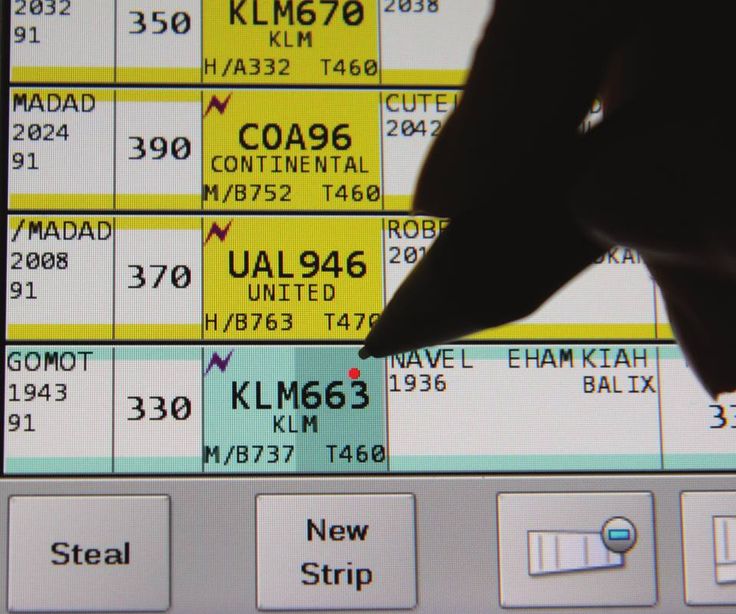
So, Bordeaux (LFBB) Center is first … starting today, November 17th. And because nobody is entirely sure how well this is all going to work, a whole bunch of traffic has to be rerouted away from Bordeaux, so that there aren’t too many aircraft per controller – both to allow them to learn, and in case it goes feet up.
Which means mass reroutes, and delays. There are contingency routes – which have become very familiar to operators after this years “Summer of Strikes” – the Tango Routes will be popular again.
Looking ahead, the plan calls for two weeks of fairly heavy reroutes, and then another two weeks of lower impact restrictions. They have said though, that normalisation won’t occur until after Christmas.
So, if you want some different options for getting around the Bordeaux FIR:
- For north-south flights The Tango Routes – via Shanwick
- For east-west flights try to file further north, into Belgian/Eurocontrol/German airspace, or come south into Barcelona/Marseilles
- Read the Eurocontrol NOP – especially on the Tactical page on the ATFCM Measures (Scenarios) portlet -and selecting the link Scenario List: ID RR*ERA
- And, here’s a map – the red part is LFBB/Bordeaux FIR – don’t file through here:
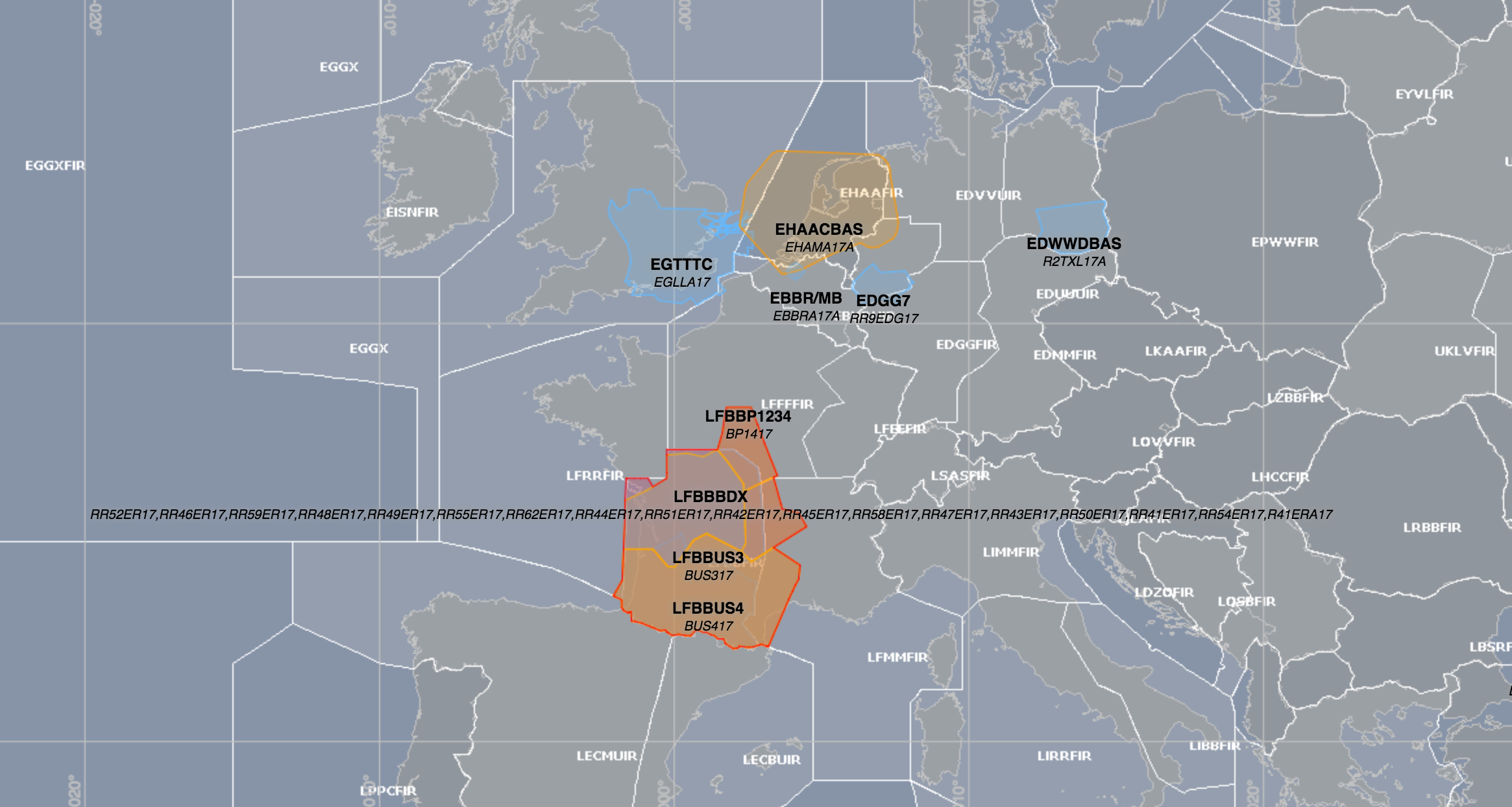
The transition from paper to paperless has been going on for a while: Shanwick went ‘electronic’ in the mid 1980’s: this is what the enroute controllers’ screen looked like.
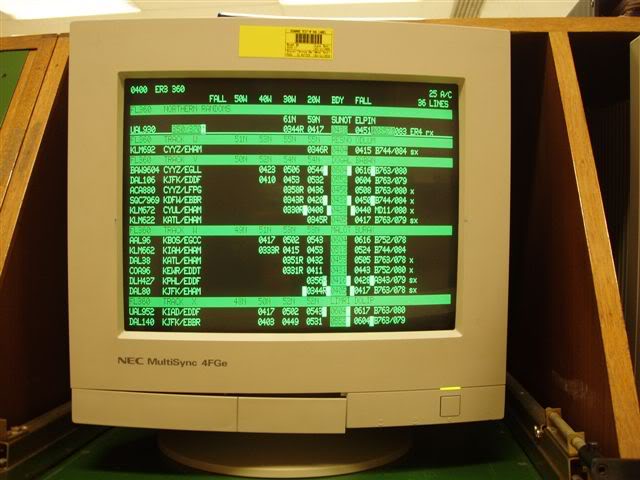
Finally, here’s the ‘official version’:
DSNA, France’s air navigation service provider, is carrying out an in-depth modernisation of its en-route air traffic management system to cope with the increase of air traffic in France.
From November 17, 280 air traffic controllers at the Bordeaux Area Control Centre (ACC) will handle flights with a new-generation, stripless ATC system called ERATO Electronic Environment (EEE).
The EEE programme based on a SESAR solution has been co-financed by the European Union. EEE provides a modern work environment and innovative control assistance tools.
Nevertheless, as a prelude to any major ATC system implementation, capacities have to be temporarily reduced to allow each air traffic controller to master in real time operations all the new capabilities.
Delays in the south-west of France are therefore to be expected during two weeks. No flight cancellations have been requested by DSNA.
To minimise the impact on flight punctuality, DSNA, has developed a transitioning plan in close cooperation with the Network Manager (Eurocontrol), neighbouring air navigation service providers, and the most affected airlines and airport operators.
Eurocontrol traffic simulations shown that for this transition period, up to 500 flights will need to be rerouted each day to avoid the airspace under the responsibility of Bordeaux ACC.
Moreover, military activities in high altitude training areas will be limited. Regional airports will be impacted along with all flights from or to Paris from the south.
ERATO2Maurice Georges, CEO of DSNA, said: “DSNA staff is totally mobilised with the implementation of this major project. I appreciate the efforts made by the entire aviation community to ensure a successful commissioning of the Electronic Environment ERATO in Bordeaux.
“The transitioning phase ahead of us relies on high predictability for all flights and trustworthy collaborative processes with our customers and partners”.
This major technological step will enable DSNA to deliver a high level of performance. Within the framework of the FABEC and in line with our Single European Sky commitments, DSNA will thus meet new challenges ahead for safe and sustainable air transport.”
More on the topic:
- More: French ATC Strike: Sep 18
- More: France Summer BizAv Parking Tips
- More: Heat Damage in Nice: When APU Rules Damage Aircraft
- More: France Hates Planes – it’s official
- More: France Wants Your Cash
More reading:
- Latest: FAA Warns on Runway Length Data and Overrun Risk
- Latest: EASA’s New Cyber and Data Risk Rule for Operators in Europe
- Latest: Airport Spy: Real World Reports from Crews
- Safe Airspace: Risk Database
- Weekly Ops Bulletin: Subscribe
- Membership plans: Why join OPSGROUP?



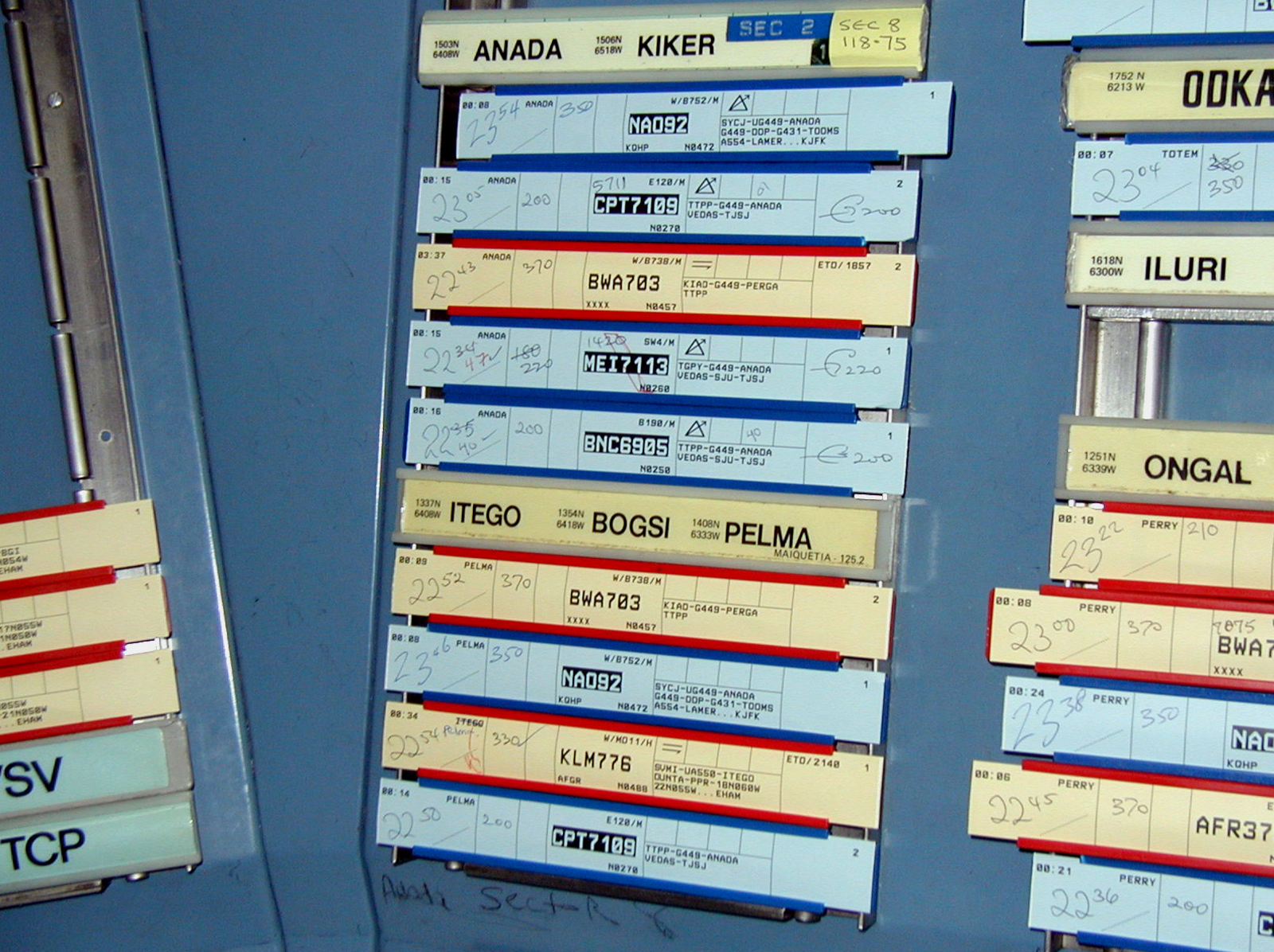

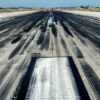





 Get the famous weekly
Get the famous weekly 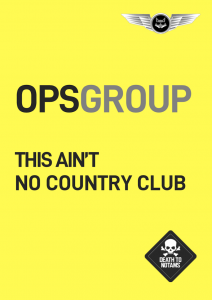



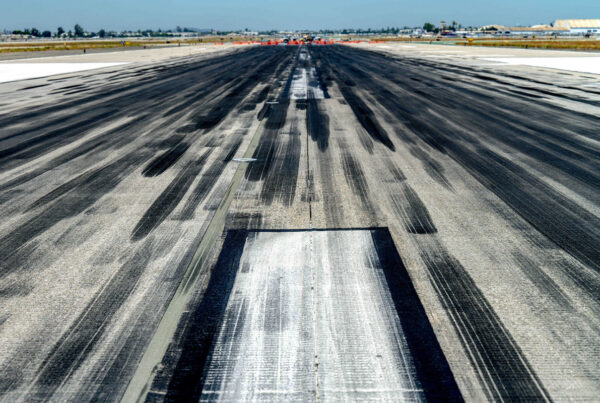


Mark – thanks for that update, glad to hear it’s going well, appreciate it. Dec.
Hi Amelia,
I am afraid that Bordeaux ERATO was not the first. Many of us remember the first ERATO implementation, in Brest ACC, a year ago. Hopefully the technical issues that were prevalent then will be resolved for Bordeaux ERATO and much greater time has been spent on mitigation plans. The first couple of days appear to have gone remarkably well.
Best Regards,
Mark